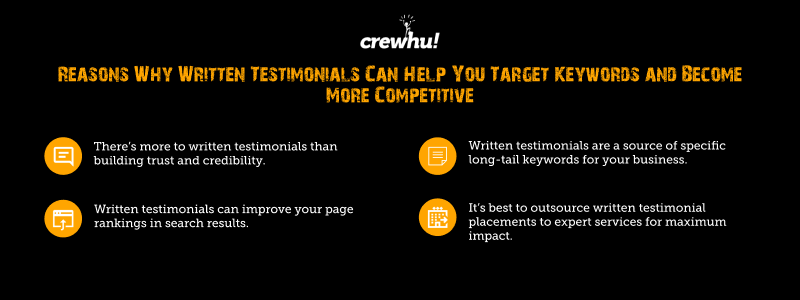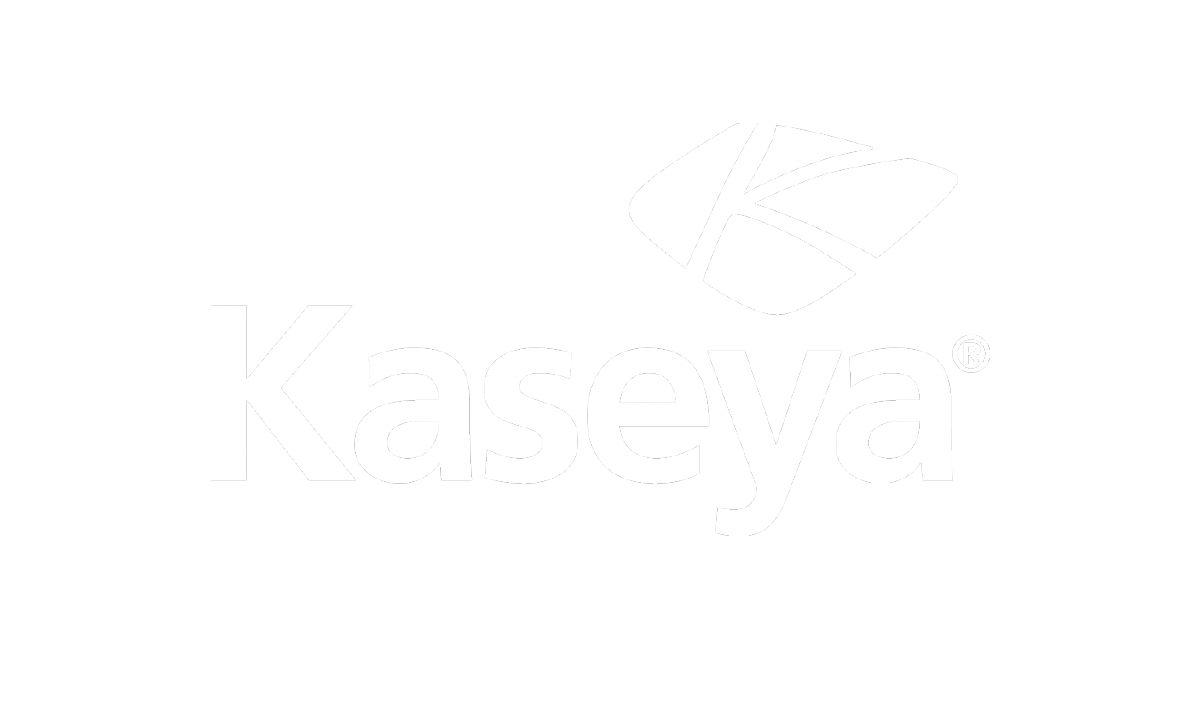3 Reasons Why Written Testimonials Can Help You Target Keywords and Become More Competitive

Many businesses use written testimonials to fill space on their websites, but they’re missing out on the many visitors they would get if they leveraged those testimonials for SEO.

It’s no surprise that testimonials are great tools for building trust and credibility. After all, 95 percent of people claim that testimonials influence their purchasing decisions.
Business owners should focus on getting as many positive client reviews and testimonials as they can, because a shift is happening in modern marketing: Prospects are beginning to trust reviews and testimonials more than product descriptions when it comes time to make a purchase.
Good testimonials do more than that, though. They can also improve your on-page search engine optimization (SEO), making it easier for current and future customers to find and engage with your brand. Testimonials do this by helping you target keywords relevant to your business so you can rank higher in search results. The only question is, how?
This article discusses why testimonials are great options for keyword targeting and how they can make you more competitive.
How written testimonials help you target keywords
Most business owners don’t see beyond testimonials’ power as an authority-building tool. To them, it’s an opportunity to fill up the white space, showcase customers using their products or services, and convert prospects through social proof.
That isn’t maximizing your testimonials’ potential, however. You need to use them as an SEO tool if you want to get more visitors to your site who are already convinced that your offerings will fit their needs or solve their problems. Use and promote the testimonials that include keyword-specific reviews. This way, you rank higher and get the right customers to your website.
Here’s how to get started:
- Get evaluations from different types of clients
There’s a reason prospects trust testimonials rather than product descriptions. Here’s what to know:
- Testimonials are essentially word-of-mouth opinions about a company’s products or services, and your customers aren’t paid for their feedback.
- Your current users write in to tell prospective users about their experience with the product and how much they’re likely to recommend it. Prospects tend to think of these reviews as a referral from a friend.
- The good thing is that you’ll get testimonials from different clients. That means different experiences with the product, different views, and different descriptions for those experiences and views. You can then leverage those reviews to help your site rank higher in search results to attract other potential clients.
Choose the reviews that have specific keywords you want to target. For instance, if your product is a project management tool, you can target reviews with “best project management tool” in them. You can also create a feedback request form on your website and ask users specific questions that draw out the keywords you want, or do interviews that draw these keywords out. Posting all of these on your website will help with search rankings.
- You can respond to reviews
Another benefit to reviews is that you can respond to them. Rather than simply saying, “Thanks for the feedback," include specific keywords. This little tweak is a way to improve your rankings and build more trust with users.
When you advertise your business, Google studies your reviews to decide whether you’re relevant to user queries. Google crawls websites for reviews and checks for the number, consistency, and customer attitudes. If Google finds a connection, that business will rank.
It’s surprising that many businesses hardly acknowledge reviews, especially because reviewers expect businesses to respond to them in 3 days or less. Some 63 percent of reviewers claim they never hear back from the business. That’s 63 out of 100 people who may not choose your product next time because you didn’t care enough to thank them for being a loyal customer.
- You can leverage your testimonial page to power your on-page SEO
You have social evidence from clients that your product works, and you have filtered those reviews for relevance. Now, we go a step further and supercharge your rankings with on-page SEO.
You’ll want to optimize important elements of your website, like the meta description and alt text, using the same keywords to improve your search rankings. Here are some tips:
- Use a mix of testimonials and keywords to ensure better rankings for your pages, especially product pages.
- If your product’s name is Ambience, you can say, “Hubspot calls Ambience the best project management tool in decades. Here’s why.”
- This way, you’ve featured your product name and the keyword “best project management tool” in your meta descriptions.
Targeting more keywords with testimonials is a great way to improve your website’s SEO, but it’s no easy task. That’s why the most successful businesses use Crewhu.
Crewhu is the first platform to mix customer service management with employee recognition, but we can help with even more aspects of your business. We can transform your operations by collecting customer, employee, and client feedback, then unlocking the full potential of that feedback with easy-to-use reports, insights, and other important data.
If you want to be more strategic in your use of testimonials, schedule a demo today.






